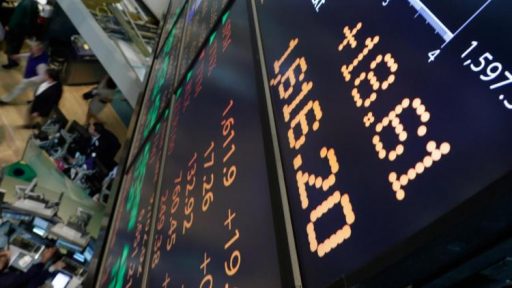- Home
- >
- Daily Accents
- >
- What every investor needs to do during the next bear market

What every investor needs to do during the next bear market

Markets always seem easy when looking through the rearview mirror because knowing what already happened makes us all feel that everything in the past was blatantly obvious. It makes us feel that we would perfectly navigate those markets if only we had the chance to invest in the same scenario again.
Hindsight Capital LLC never shows any losses, always gets out before the market takes a nose dive and knows exactly how to fight the last war.
The current bull market is no different. Everyone now just knows that it was obvious to invest at the bottom in March of 2009 and hang on the entire way because every single dip led to a buying opportunity.
These buying opportunities are never quite so easy at the time though. Take, for instance, the stock market swoon in the summer and fall of 2011. Allow me to take you back to what was a fairly scary time in the financial markets:
- It was less than two years after the end of the biggest financial crisis since the Great Depression and investors were still on edge and scared out of their minds anytime volatility reared its ugly head.
- In August, the U.S. saw its triple-A rated credit rating downgraded by Standard & Poors.
- The European sovereign debt crisis was beginning to hit its stride and people were seriously considering what would happen if certain countries defaulted on their debt or completely left the European Union. Bond yields in Europe were soaring.
The S&P 500 ended up falling 19% and change fairly quickly, which while not technically a bear market by round number standard, really felt like one at the time. Consider the following six-day stretch in the S&P 500 following the downgrade of the U.S. credit rating in August: -4.78%
-0.06%, -6.66%, +4.74%, -4.42%, +4.63%
Stocks rose or fell by more than 4% in five out of six days! I remember watching this in real time and trying to make sense of what was happening. It really was a crazy period in the markets and world economy.
Anyone who bought U.S. stocks during this period or simply held on has been rewarded handsomely. Since October of 2011, the S&P has more than doubled, rising almost 140% on a total return basis.
The question is: How many investors actually did stay the course during this hyper-volatility?
It’s become fashionable for professional investors to mock indexers and claim that it’s going to “end badly” for them during the market downturn.
Just wait until the next bear market. All these “passive” investors are going to get slaughtered and bail out.
Maybe they’re right. Maybe some of these newly minted index investors will tap out and sell at the wrong time. Panic doesn’t discriminate based on which type of investment product you own.
But according to a Vanguard study released in the eye of this 2011 market storm, most of their investors did stay the course and remain calm.
So in those crazy days in the summer of 2011 less than 2% of investors in Vanguard’s retirement system made changes to their portfolio. It’s even more surprising that only 4% made a move during the even crazier fall of 2008 period.
This is a tiny sample size but it shows that the large majority of Vanguard investors did remain long-term investors during the two previous bouts of increased market volatility.
Normal investors get a bad rap from many in the investment industry. And I get why so many professional investors are hating on index funds these days. Most of it is people worried about their livelihood. It can’t be easy to see all of your hard work and analysis get beaten year-in and year out by simple, low-cost funds.
Vanguard-style investors typically follow a very simple investment approach that’s grounded in low-costs, inactivity, and a long-term holding period. It may be simple but it certainly isn’t easy. I’ll be interested to see how many new Vanguard disciples stay the course whenever the next big downturn hits.
Source: Yahoo Finance
Senan Fuchedzhiev - Trader
 Varchev Traders
Varchev Traders Read more:
If you think, we can improve that section,
please comment. Your oppinion is imortant for us.











